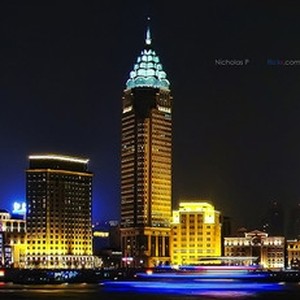
Again the boys’ eyes ranged up and down from Edwin’s fingers to the teeth on the log.
“The world was full of people. The census of 2010 gave eight billions for the whole world—eight crab-shells, yes, eight billions. It was not like to-day. Mankind knew a great deal more about getting food. And the more food there was, the more people there were. In the year 1800, there were one hundred and seventy millions in Europe alone. One hundred years later—a grain of sand, Hoo-Hoo—one hundred years later, at 1900, there were five hundred millions in Europe—five grains of sand, Hoo-Hoo, and this one tooth. This shows how easy was the getting of food, and how men increased. And in the year 2000 there were fifteen hundred millions in Europe. And it was the same all over the rest of the world. Eight crab-shells there, yes, eight billion people were alive on the earth when the Scarlet Death began.
“I was a young man when the Plague came—twenty-seven years old; and I lived on the other side of San Francisco Bay, in Berkeley. You remember those great stone houses, Edwin, when we came down the hills from Contra Costa? That was where I lived, in those stone houses. I was a professor of English literature.”
Much of this was over the heads of the boys, but they strove to comprehend dimly this tale of the past.
“What was them stone houses for?” Hare-Lip queried.
“You remember when your dad taught you to swim?” The boy nodded. “Well, in the University of California—that is the name we had for the houses—we taught young men and women how to think, just as I have taught you now, by sand and pebbles and shells, to know how many people lived in those days. There was very much to teach. The young men and women we taught were called students. We had large rooms in which we taught. I talked to them, forty or fifty at a time, just as I am talking to you now. I told them about the books other men had written before their time, and even, sometimes, in their time—”
“Was that all you did?—just talk, talk, talk?” Hoo-Hoo demanded. “Who hunted your meat for you? and milked the goats? and caught the fish?”
“A sensible question, Hoo-Hoo, a sensible question. As I have told you, in those days food-getting was easy. We were very wise. A few men got the food for many men. The other men did other things. As you say, I talked. I talked all the time, and for this food was given me—much food, fine food, beautiful food, food that I have not tasted in sixty years and shall never taste again. I sometimes think the most wonderful achievement of our tremendous civilization was food—its inconceivable abundance, its infinite variety, its marvellous delicacy. O my grandsons, life was life in those days, when we had such wonderful things to eat.”
This was beyond the boys, and they let it slip by, words and thoughts, as a mere senile wandering in the narrative.
“Our food-getters were called freemen. This was a joke. We of the ruling classes owned all the land, all the machines, everything. These food-getters were our slaves. We took almost all the food they got, and left them a little so that they might eat, and work, and get us more food—”